- Home
- Vince Flynn
Kill Shot Page 4
Kill Shot Read online
Page 4
The man I have been sent to kill will finally die, and I will be rewarded handsomely, Samir thought. Samir had played this out in his mind evening after evening, and the end result was always the assassin lying dead in a pool of his own blood. Four men with submachine guns against a single man with a pistol, and he was in reserve just in case—hundreds of bullets against a handful. This would surely end in his favor.
Samir was just about to enter the room when the clamor came to an abrupt stop. In the silence that followed he heard a sound he couldn’t quite place. Cocking his head to one side in thought, he tried to figure out what was the cause of the strange gurgling noise. At the precise moment he figured it out, he heard his brother grunt in agony. Samir froze where he was. A second later his brother began to stumble back through the doorway without his weapon, his hands clutching his stomach. No more than a foot or two in front of him, Samir saw a bullet hit his brother in the chest, exiting out his back and spraying blood all over the wall across the hall. Horrified, Samir reached out to grab him and the door frame suddenly exploded, sending splinters of wood flying. Samir jerked back, feeling the sting in his cheek.
His right eye began blinking frantically as he watched his brother fall, and then fear seized his every muscle as it occurred to him that the assassin might be coming for him. Without really thinking, Samir moved his submachine gun to his left hand and swung it around the door frame, closed his eyes, and unleashed a volley on full automatic.
Samir stayed in the hallway and fired two more quick bursts into the room. In the quiet that suddenly fell over the scene he looked down at his brother, who was staring up at him with vacant eyes. The guilt hit him like a knife in the chest and his anger took over. Samir swung the black suppressor into the room and held down the trigger. He moved forward, wildly sweeping the weapon back and forth until he was out of bullets.
Stopping in the half light of the hallway, he took in the mess. Three of his men lay dead at his feet, but there was no sign of the assassin. Samir ejected the spent magazine and inserted a new one while his eyes settled on the drapes that blocked the balcony doors. His feet were moving before he’d made a conscious decision. He fired a quick burst through the curtain and then threw the fabric back to the side. The first thing he saw when he stepped onto the balcony was the rope. He followed it to the ground, where he saw a man in black running across the street.
Samir shouldered his weapon and put the gun’s hoop sight over the moving target. He squeezed off a quick three-round burst, but had no way of knowing if he’d hit low, high, right, or left. The assassin changed course and Samir adjusted, this time holding the trigger down and sending a steady stream of bullets after the man. After a few seconds the bolt suddenly slammed into the open position, telling him he was out of rounds. Samir watched the assassin disappear into the shadows and fought back the urge to scream.
He moved back into the room and looked at the carnage. He’d lost three of his men and his own brother was dead in the hallway. He had failed miserably. He began to shake with a mix of fear and white-hot rage. What would he tell their mother? What would he tell the Spaniard and Rafique? Where had he gone wrong? Samir shook his head in disgust but somewhere deep in his brain he knew he was lucky to be alive. He could never say that to the others, though. He could never look so frail in front of them, or they might kill him.
Samir’s mind was shocked back to his current predicament by a sound in the hallway. He needed to get the hell out of there, and quickly, before the police showed up. He slid a fresh magazine into his gun and hit the slide release. At the doorway his eyes were drawn to his brother, but he couldn’t handle the grief. Fighting back the tears, he moved down the hallway toward the stairs. A door on his left opened, revealing a skinny woman in a white bathrobe. Samir raised his weapon and without breaking stride, pumped five rounds into her chest. Two doors later a man stepped into the hallway on his right. Samir squeezed off another burst. He rushed down the stairs, through a short hallway, and into the back alley where he came face to face with a hotel worker. The young man saw the gun and raised his hands. Samir didn’t hesitate. He pulled the trigger back as far as it would go and sent the man sprawling backward into a pile of garbage bags.
CHAPTER 5
RAPP had never been shot, but it wasn’t the type of thing one had to experience to recognize. Bullets had been flying at a rapid pace and one of them had found its mark. The impact had caused him to drop his gun to the street below, but he had held on to the rope. The zip of bullets cracked above his head as Rapp fell over the railing and then dropped. He clamped down with his right hand, the maneuver causing him to spin 180 degrees and come crashing back to the building. He got his feet out in front of him just in time to stop himself from slamming face-first into the stone facade.
Dangling with a bullet wound from a rope and with his gun forty-odd feet below him on the street gave Rapp a sense of vulnerability he did not like. The thought of grabbing his backup gun occurred to him, but his legs were already bending at the knees and kicking him away from the wall. He needed to get away from this place as fast as possible. He loosened his grip on the rope and dropped ten feet before clamping down again. His feet found the wall once more and he used them to push himself away from the building.
When he reached the pavement he looked down to find his gun just a few feet away. He grabbed the weapon and quickly looked left and right. No headlights were visible, but the police would be here shortly. Rapp was already moving across the street and toward the river. He was halfway clear when bullets started snapping in the air around him. He jerked left, crouched a bit, and then broke into a full sprint. The bullets followed him and he jerked right and then his feet found the grass and shadows of the trees. The bullets stopped, but Rapp continued to the right for another fifty feet to make sure he was fully concealed before he committed to his true course.
The bench and walking path were exactly where Rapp expected them to be. He crossed the path and turned left, his feet barely making a noise as they moved lightly along the asphalt. His lungs and legs were working fine, carrying him at quick clip toward a spot he had scouted out a few days earlier. Just before he reached the bridge the first wave of pain hit him. It came rolling in, building in intensity until it hit, throbbed, and then diminished. Rapp resisted the urge to touch his shoulder and assess the damage. He could feel the slick wetness under his shirt and that told him enough. The wound was somewhere in his left shoulder, which meant he should be able to handle it unless it had hit his axillary artery. If that were the case, he would most likely lose consciousness and bleed out in the next few minutes.
Up ahead he sighted the low-slung bridge with its curved stone arches. Rapp suddenly couldn’t remember its name, which made him wonder if his brain wasn’t getting enough blood. He slowed his pace and left the path. The crunch of dirt and gravel under his feet told him he had found the foot-worn trail. He followed it slowly to the south embankment of the river and the base of the bridge. The ledge was no more than three feet wide. Rapp paused and peered down the length of it. There was just enough light from the city bouncing off the water to see that he was alone. He ducked under the curved arch and crouched his way to the middle. He sat down on the ledge, his feet dangling a few feet above the water of the Seine.
Out of habit, Rapp moved to switch his silenced Berretta from his right hand to his left so he could holster it, but his left hand did not respond in the way he would have liked. He managed to move it a few inches and then a stabbing pain told him it was a bad idea. Rapp cursed under his breath and then set the gun down on the ledge next to him. Using his teeth, Rapp tugged off the glove on his right hand, finger by finger, and dropped the glove next to the gun. He opened his jacket and then undid the next two buttons on his shirt. His hand slid over the rough fabric of his bulletproof vest and found his bare shoulder soaked in blood. A wave of pain peaked and he bit down hard. As the surge passed his index finger found what he was looking for—the exit wound.
Rapp breathed a sigh of relief. The bullet had gone all the way through and the hole was no bigger than the tip of his finger. If it had been a hollow-tipped round the exit wound would have been much bigger and the damage far worse.
Reaching around his back, he found the entry wound and sensed there was less blood, but it was hard to tell. He unfastened the small pack around his waist and opened the med kit. His fingers found a small pen flashlight. Rapp placed it against his thigh and turned it on. Satisfied that the red filter was affixed, he placed the small flashlight in his teeth and found the first of four syringes. He popped the cap, letting it fall into the river, and then, pressing the plunger, he soaked his shoulder in iodine.
Rapp looked at the next syringe for a second and hesitated. He had gone over this in theory, but now, sitting here bleeding, he began to realize just how much it was going to hurt. Before he did that, though, he had to plug the hole. He tore open a package of gauze and started feeding it into the entry wound on the back of his shoulder. The pain was more manageable than he’d expected, but this would be the easy part. When he was done, he picked up the next syringe and dropped that cap into the river as well. Grabbing his left wrist, Rapp brought it up and hooked the hand’s fingers around his jacket and shirt, exposing the exit wound, and then let the limp arm hang there. Not wanting to think about the next move any longer than he needed to, he placed the tip of the plastic syringe into the exit hole, took a deep breath and then shoved the needle in as far as it would go. It took every ounce of control not to scream. Rapp’s entire body went rigid with pain, his eyes rolled back in his head, and for a good five seconds he feared he might pass out.
The shock of the initial pain began to recede and Rapp took several deep breaths. When he was ready, he placed his thumb on the plunger. Then he pressed down and the first few cc’s of the powdered blood coagulant flowed into the wound. Rapp pulled the syringe out an inch and pumped more of the powder into the wound. He repeated the process two more times until the syringe was empty. After discarding it, he grabbed the next-to-last syringe, popped the cap, and jabbed it into the wound. A muffled curse escaped his lips this time, and he grunted while he hit the plunger, sending super glue into the wound to help stop the bleeding.
Police sirens could now be heard coming from every direction. Rapp tossed the syringe out into the current and leaned back. He had to get moving. He fished out the last syringe. It contained a broad-spectrum antibiotic. He sat up straight and found a patch of skin under his bulletproof vest. He jabbed the needle through the fabric of his dress shirt and didn’t so much as feel a pinch. Not knowing how he would secure the med kit and thinking that he had pretty much done all he could, he dropped the entire thing into the murky river. He stared down at his gun for a second and was about to dump it as well, but decided against it. Where he was going he would have plenty of opportunities to dispose of it. Rapp grabbed the weapon with his good hand, reversed it, and nudged the tip of the suppressor into the holster. As he snapped it into place, he heard voices off to his right. He knew the temperature of the water, the speed of the current, and roughly how long he would last until hypothermia took his life.
As the voices grew louder, Rapp scooted his butt to the edge, gripped the stone with his right hand, and slid himself quietly off the ledge and into the water. He sank beneath the surface smoothly, the suction of his clothes pulling him down. He knew not to panic. As soon as his clothes were soaked, they would be neutral. Rapp bobbed to the surface five seconds later, the current already pushing him to the west. He took in an easy breath and ignored the chill of the dark water, telling himself it would help slow his blood flow. He was going to take a casual swim through the heart of Paris, and in a few hours, he would find the right place to make ground.
Rapp rolled onto his back and gently scissor-kicked his legs under the surface. As he cleared the relative darkness of the bridge he looked up at the night sky and for the briefest of moments wondered how many people had died in this river—if his would be just another body to add to the count. The thought made him smile. Always up for a challenge, Rapp felt his survival mode kick in, and he told himself that he would live through this night as surely as the sun would rise in the east in the morning. And then he would go searching for answers. Something had gone horribly wrong tonight, and Rapp needed to know how the enemy was on to him. No matter what Kennedy and the others ordered, he would not be going back to the states for some time on the couch with Langley’s resident shrink.
CHAPTER 6
COMMANDANT Francine Neville of the French Judicial Police stood amidst the carnage holding a cup of coffee in one hand and desperately wishing she had a cigarette in the other. Her people were picking through the slaughter with gloved hands and various tools. A photographer stood in the doorway clicking away. Neville was momentarily conscious of the fact that she wasn’t wearing any makeup and her hair, which she wore in a swooping bob midway between her ears and shoulders, was probably sticking out in a way that made her look slightly deranged. She’d been to enough crime scenes over the years, though, to know it was a waste of time to worry. If this crime was ever solved, and brought to court, she would have to endure the less-than-flattering photos with the rest of her team, who had all been yanked from their beds before sunrise.
Neville was good at her job. She had risen quickly through the ranks of the National Police, both in spite of the fact that she was a woman and because she was a woman. Political pressures had ushered in the brave new age of women in positions of command and Neville knew there were still plenty of misogynists around who thought the only reason she’d made commandant at the relatively young age of thirty-seven was that the bosses had to reach their quota. She ignored all of the whispers, focused on her job, and took comfort in the fact that the men she worked with knew she was qualified and had earned her position. On nights like this, however, she questioned why she had chosen police work.
Neville’s face was a pinched scowl as she surveyed the chaos. This one would be a real circus. She had a fat naked man in the bed with a skinny woman half his age lying next to him. Both were dead—riddled with bullets. Four more men, paramilitary types by the look of them, were also strewn about the floor. These bodies were relatively intact, with only one or two slugs in them. Down the hall, two more bodies were sprawled out in separate doorways. Neville figured they were hotel guests who had heard the commotion, and when they’d gone to investigate, had been killed by the crazy bastards who had done all of this. Also, an unfortunate young employee of the hotel who did the overnight laundry was now prostrate in the alley with five bullet holes in his chest. Neville tallied the carnage—nine bodies in total. In her sixteen years on the force, the biggest investigation she’d been involved in was a triple homicide. It was of course a love triangle, murder-suicide. While sensational, the case was not hard for the press and public to figure out. Wife cheats on husband, husband kills wife and her boyfriend, and then kills himself. It wasn’t the first such murder, and it wouldn’t be the last.
This was an entirely different scenario. The number of victims pushed her mind in two separate but linked directions. They’d had a real problem with the Slav gangs that had flooded into the slums after Yugoslavia fell apart and spiraled into civil war, and now the Russian gangs with their newfound independence were beginning to assert themselves. As always, she would need to keep her mind open, but those two groups were at the top of her list.
Gnawing at the back of her mind were two other entities—her superiors at the National Police headquarters and the press. Submachine-gun fire at a five-star hotel in the heart of Paris was sensational enough; throw in the nine dead bodies and she was guaranteed a media circus the likes of which the city hadn’t seen since the Dreyfus Affair. Her superiors would find it nearly impossible not to interfere and she already knew how they would do it. A few would try to micromanage her investigation and the bulk would spend their lunches leaking to the press.
Anxiety crept up on Neville as she
realized this entire mess could end her career. Her attention turned to the dead man lying on the bed. It was something out of one of those American mobster movies. Feathers and tufts of fabric were everywhere, and a good amount of it was clinging to puddles of blood. She looked to the four paramilitary types on the floor. They could easily be Serbs or Croats. They had that swarthy look. Neville had sent one of her officers down to the front desk to find out whose name the room was registered under. She heard a cackle of grating laughter from the hallway, and a moment later a man appeared in the doorway, stopped, and looked down at one of the dead bodies.
If Neville needed any confirmation that she was in the middle of a shit storm, it was now standing in the doorway. She had hoped to get through the rest of her life without ever seeing Paul Fournier again, and she had made it nearly four years, but tonight her luck had run out. Fournier was DGSE—France’s General Directorate for External Security. It was the organization tasked with the external security of the country—the key word being external. Neville had a sinking feeling that Fournier was here because of the man in the bed. As her gaze shifted between the two men, one dead and the other alive, she knew that this case had just become infinitely more complicated.
“Francine,” Fournier called far too loudly from across the room. “A pleasure to see you. It’s been far too long.”
Neville sighed and said, “Paul, what are you doing here?”
“You know how things work at the Directorate,” he said with a broad grin under a salt-and-pepper mustache. “We go wherever the Republic needs us.”
“I thought you specialized in subverting the unstable governments to our south.”
Fournier laughed heartily and stepped carefully around the dead bodies. When he was a step away from Neville, he held out his arms as if he was ready to embrace an old friend.

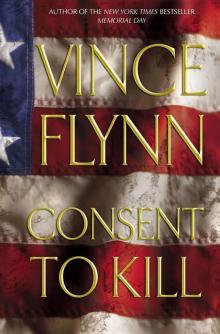 Consent to Kill
Consent to Kill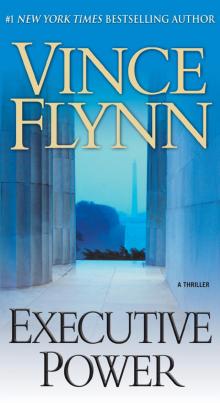 Executive Power
Executive Power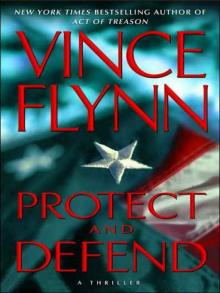 Protect and Defend
Protect and Defend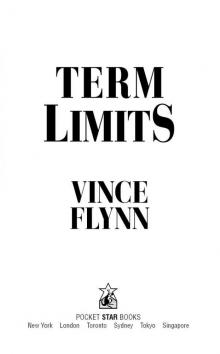 Term Limits
Term Limits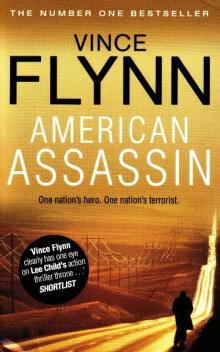 American Assassin
American Assassin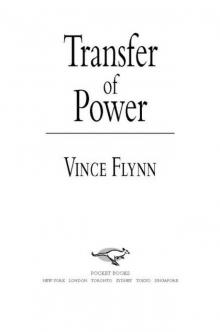 Transfer of Power
Transfer of Power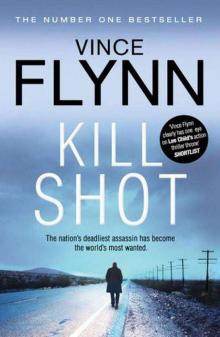 Kill Shot
Kill Shot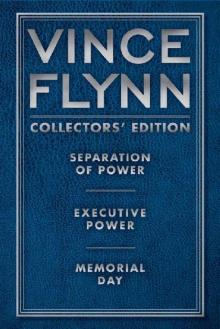 Vince Flynn Collectors' Edition 2
Vince Flynn Collectors' Edition 2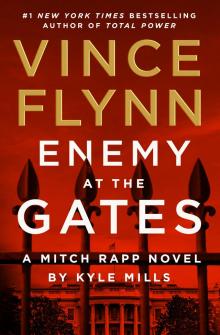 Enemy at the Gates
Enemy at the Gates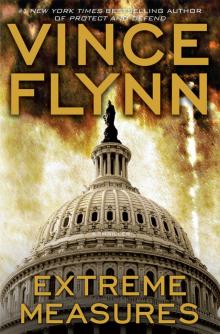 Extreme Measures
Extreme Measures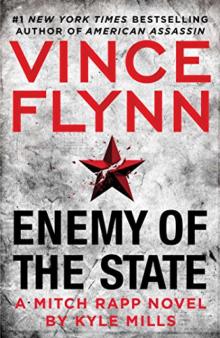 Enemy of the State
Enemy of the State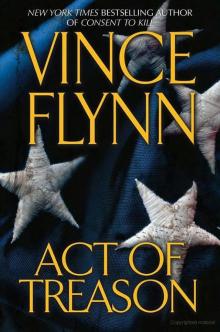 Act of Treason
Act of Treason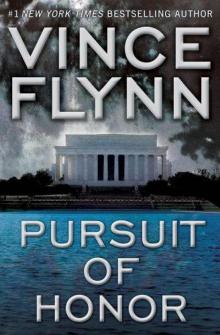 Pursuit of Honor
Pursuit of Honor The Survivor
The Survivor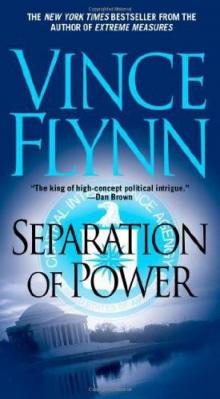 Separation of Power
Separation of Power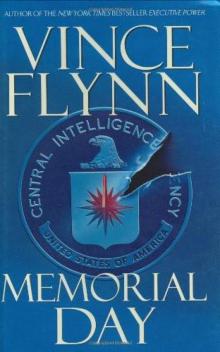 Memorial Day
Memorial Day The Last Man
The Last Man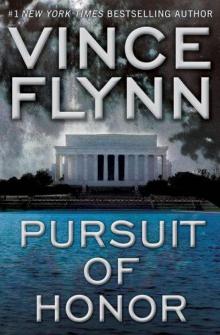 Pursuit of Honor_A Thriller
Pursuit of Honor_A Thriller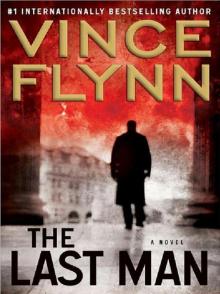 Mitch Rapp 13 - The Last Man
Mitch Rapp 13 - The Last Man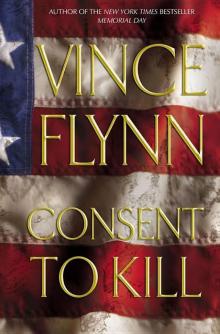 Consent to Kill:
Consent to Kill: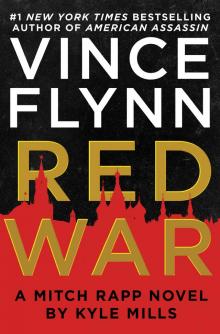 Red War
Red War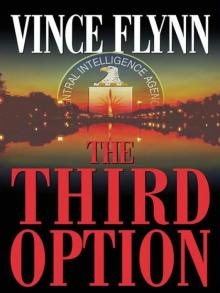 Mitch Rapp 02 - The Third Option
Mitch Rapp 02 - The Third Option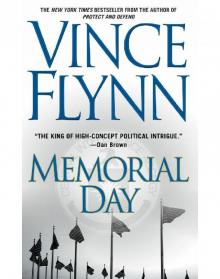 Mitch Rapp 05 - Memorial Day
Mitch Rapp 05 - Memorial Day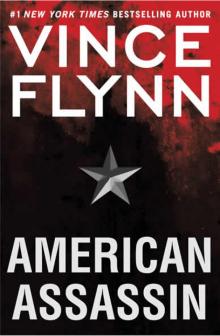 Mitch Rapp 11 - American Assassin
Mitch Rapp 11 - American Assassin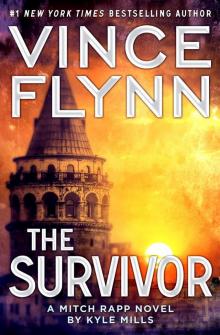 Mitch Rapp 14 - The Survivor
Mitch Rapp 14 - The Survivor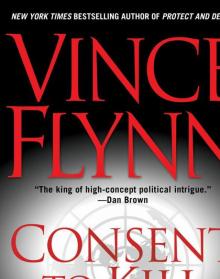 Mitch Rapp 06 - Consent to Kill
Mitch Rapp 06 - Consent to Kill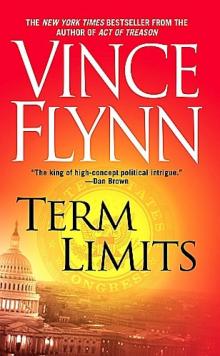 Term Limits mr-1
Term Limits mr-1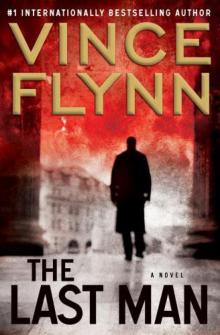 The Last Man mr-13
The Last Man mr-13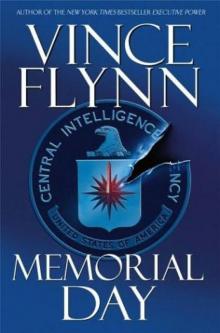 Memorial Day mr-5
Memorial Day mr-5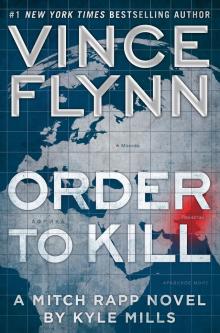 Order to Kill
Order to Kill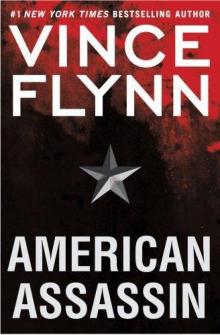 American Assassin: A Thriller
American Assassin: A Thriller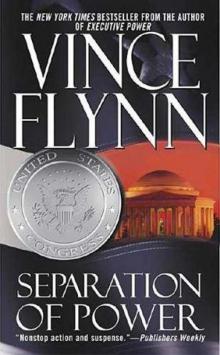 Separation of Power mr-3
Separation of Power mr-3